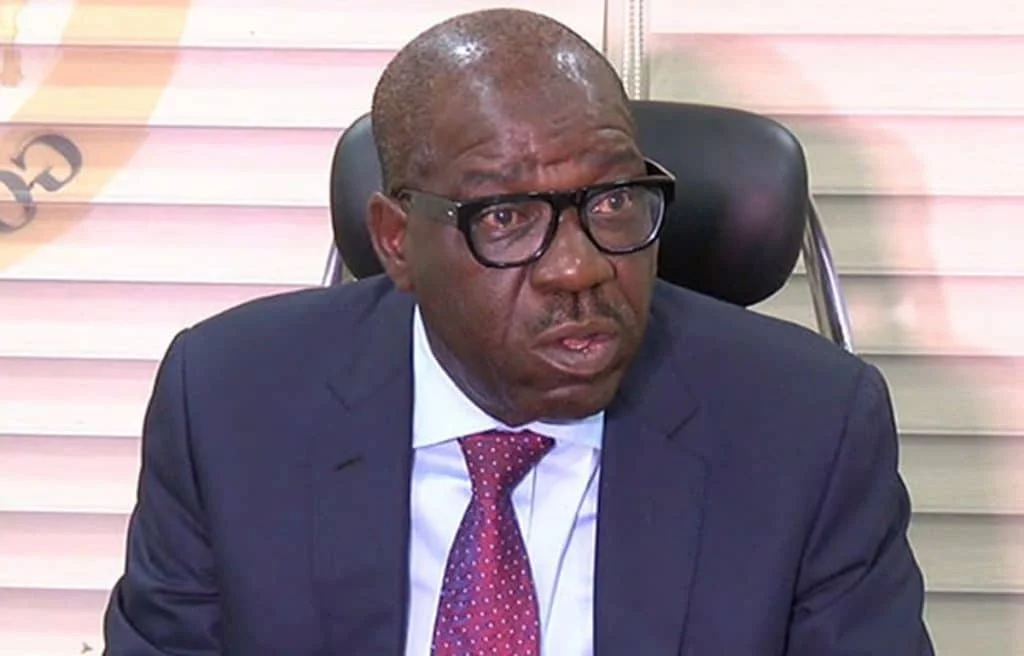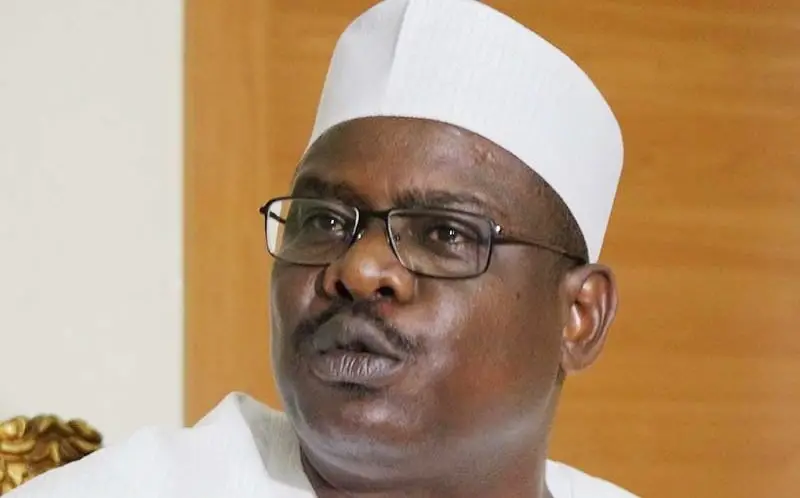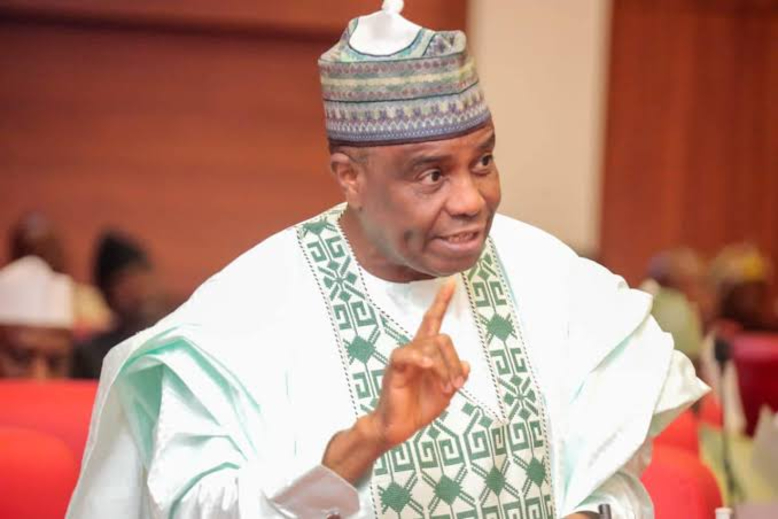News
Taliban Renames Country Islamic Emirate Of Afghanistan

The Taliban has renamed Afghanistan the ‘Islamic Emirate of Afghanistan’ after its fighters swept into the capital, Kabul, a bustling metropolis of six million that has turned into a male-dominated city without police or traffic controls.
Aljazeera reports that scores of Afghans ran alongside a US military plane as it taxied on the runway and several clung to the side as the jet took off with Senior US military officials confirming to Aljazeera that the chaos left seven dead, as well as several who fell from the flight.
According to AP, the Taliban, a militant group that ran the country in the late 1990s, have again taken control.
The US-led invasion of Afghanistan in 2001 ousted the insurgents from power, but they never left.
After they blitzed across the country in recent days, the Western-backed government that has run the country for 20 years collapsed.
CNN reports that hundreds of people poured onto the tarmac at Kabul’s international airport, desperately seeking a route out of Afghanistan on Monday after the Taliban’s sudden seizure of power sparked a chaotic Western withdrawal and brought to a crashing end the United States’ two-decade mission in the country.
READ ALSO: Taliban Complete Northeast Afghan Blitz, Captures More Cities
Meanwhile, at a special session of the UN Security Council in New York, UN Secretary-General, Antonio Guterres, urged Taliban to show “the utmost restraint to protect lives” and demanded that anyone who wanted to leave the country must be able to do so.
US President Joe Biden also received a briefing by top security officials on the situation in Afghanistan, the White House said.
“This morning, the President was briefed by his national security team, including the Secretary of Defense and Chairman Milley, on the security situation at Hamid Karzai International Airport, and ongoing efforts to safely evacuate American citizens, US Embassy personnel and local staff, SIV (special immigrant visa) applicants and their families, and other vulnerable Afghans,” it said in a statement.
News
Ex-Edo Gov Obaseki Reacts As His Cousin Is Beaten, Stripped

The immediate past governor of Edo State, Godwin Obaseki, has reacted to the attack on Don Pedro Obaseki, the Chief Executive Officer of Osamudia Farms.
Don Pedro Obaseki, a cousin to the immediate past governor was attacked at Uwa Primary School where he went to play football.
In a viral video, Pedro Obaseki is seen kneeling at the Oba of Benin Palace gate, before he was dragged into the palace where he was asked to crawl before some chief walked up to the scene and rescued him.
Reacting, the ex-Edo governor described the act as a “grave violation of fundamental human rights and a reckless disregard for the rule of law.”
READ ALSO: Obaseki Beaten, Stripped In Edo
Obaseki, said: “I call on security agencies to immediately investigate this matter thoroughly and transparently, identify those responsible for this barbaric act and ensure they are held accountable in accordance with the law.
“A situation where thugs and non-state actors appear to freely take the law into their own hands on behalf of high-profile individuals and those in positions of authority can only result in one outcome, a degeneration into a state of anarchy, which will do no one no good.”
He further charged, “I urge human rights organizations, civil society groups, and all well-meaning Nigerians to lend their voices and speak out firmly against this injustice and gross violation of human rights.”
News
New Tax Laws: Suspend January 2026 Implementation — Senator Ndume Tells Tinubu

Former Senate Leader, Ali Ndume has appealed to President Bola Ahmed Tinubu to suspend the January 1, 2026, implementation of the country’s new tax laws amid growing controversy.
The federal lawmaker made the appeal in a statement he issued on Wednesday in Abuja.
This comes as the Nigerian Bar Association demanded the suspension of the implementation.
Recall that a member of the House of Representatives, Abdussamad Dasuki, had last week called the Parliament’s attention to alleged alteration to the tax laws.
READ ALSO:FIRS Confirms NIN As Tax ID
Chairman of the Presidential Fiscal Policy and Tax Reforms Committee, Taiwo Oyedele, in an interview on Arise Television on Wednesday, called for calm over claims of alterations in tax laws and urged Nigerians to allow lawmakers to complete their investigation before drawing conclusions.
Speaking on the ongoing controversy about the tax laws, Ndume noted that proceeding with the implementation without getting to the root of the alleged forgery will create a legitimacy challenge for the tax laws.
His statement read, “With the controversy surrounding it, the President should constitute a team to verify the veracity of the claim and act accordingly.
“As the responsive leader that he has always been, he should look at it to find out if the copy that was signed and the claim of alterations are genuine so that he will do the needful to bring the controversy to rest.
READ ALSO:US Threatens To Sanction Countries That Vote For Shipping Carbon Tax
“If not, the controversy will continue.” That is to say, the tax law will not be implemented, because you can’t build on nothing.
“So, Mr. President should suspend the implementation until the issues are resolved because so many civil society organizations, the Arewa Community, and the Nigerian Bar Association are saying that he should withdraw the tax law and investigate the allegation of forgery.”
“Therefore, Mr President should get to the root of the allegation of forgery. The small committee that will be set up should look into it while the House of Representatives does its own.”
News
Tambuwal Engages Security Agencies As US Airstrikes Hit Own LG In Sokoto

Senator Aminu Waziri Tambuwal, representing Sokoto South, has called on residents of Sokoto State to remain calm following reports of United States airstrikes targeting ISIS-linked terrorists on Christmas Day.
In a statement posted on his personal X account, the former Sokoto State governor said he was aware of reports concerning the airstrikes, which marked a direct US military action in Nigeria based on intelligence about ISWAP threats, and urged citizens to remain law-abiding while authorities clarify the situation.
“I have noted the reports concerning an airstrike carried out as part of ongoing counterterrorism efforts through cooperation between the federal government of Nigeria and the United States,” Tambuwal said. “I urge our communities to remain calm and law abiding as relevant authorities clarify the circumstances surrounding the operation.”
READ ALSO:US Dept Of War Shares Video Of Air Strikes In Nigeria
Tambuwal assured constituents that he was engaging with relevant security agencies to obtain full details of the operation and to ensure that necessary things were in place to protect civilians.
“I wish to assure the people of Sokoto South that I am in active talks with relevant security authorities to obtain full details and ensure that all necessary safeguards are upheld,” he added.
The senator emphasised that counterterrorism operations were aimed strictly at criminal and terrorist elements threatening public safety, not innocent civilians who are often victims of insecurity. He stressed that the protection of civilian lives must remain central to all legitimate security actions.
He further called on community leaders, traditional institutions and residents to work closely with security agencies by sharing credible intelligence and resisting misinformation capable of causing fear or heightening tension.

 News5 days ago
News5 days agoUBTH CMD Marks 120 Days In Office, Expresses Commitment To Providing Conducive Working Environment

 Metro5 days ago
Metro5 days agoFintiri Pardons Man Sentenced To Death For ‘Killing Herdsman In Self-defence’, Others

 News4 days ago
News4 days agoJUST IN: Kano Lawmaker, Sarki Aliyu Daneji, Dies Hours After Colleague’s Passing

 News4 days ago
News4 days agoFULL LIST: Churches That Don’t Celebrate Christmas

 Metro5 days ago
Metro5 days agoPetrol Tanker Crashes Into Akpabio’s Convoy, Kills Police Dispatch Rider

 Headline2 days ago
Headline2 days agoJUST IN: US Forces Bomb Terrorists Camps In Nigeria

 News3 days ago
News3 days agoOkpebholo Slams ₦25bn Libel Suit On Edo PDP Chairman

 Business5 days ago
Business5 days agoNaira Records Significant Appreciation Against US Dollar

 Politics5 days ago
Politics5 days agoPDP Crisis: INEC Rejects Turaki-led NWC

 Headline2 days ago
Headline2 days agoUS Dept Of War Shares Video Of Air Strikes In Nigeria




















